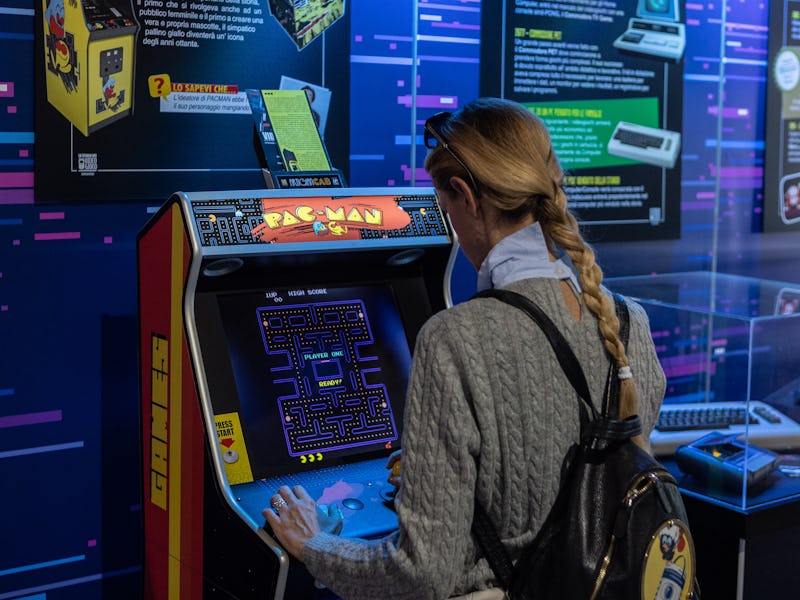Huge New Survey Reveals the Biggest Threats to Video Games in 2024
Some developers fear generative AI could lead to even more pain ahead.

Ahead of this year’s Game Developers Conference starting on March 18, GDC shared the results of its State of the Game Industry Survey. GDC and Game Developer partnered this year on the survey, which polls professionals across all disciplines of game development to paint a picture of what it’s like to work in the industry today. This year, developers voiced their opinions on generative AI, changing game engines, the recent wave of layoffs, and more. Here are the biggest takeaways from the State of the Game Industry Survey 2024.
Developers fear more layoffs to come
Last year, the game industry saw more than 9,000 layoffs. Of the 3,000 respondents to GDC’s survey, one-third said they’d either been laid off themselves or had another team member laid off. Layoffs were concentrated mostly among QA workers, 22 percent of whom said they were laid off this year, compared to 7 percent of all developers.
In 2024, 56 percent of developers say they’re worried about further layoffs. But as GDC notes, its survey was conducted in October, so sentiments may have changed after the major layoffs that occurred in the last few months of 2023. In response to the layoffs, GDC says many developers “expressed a desire for unionization to better protect workers.”
"I think layoffs suck," Dan Crone, senior community developer at CCP Games which makes Eve Online, tells Inverse. "I don't like them. There has been a lot lately of one group or another announcing layoffs. Recently, it's been Amazon and Twitch. Working in the industry for several years, I'll go, 'Is so-and-so okay?' So that's where my concerns stem from."
Crone adds, "There's the gaming industry diaspora. People churning in between companies and moving around the place. I have the broadest sympathy for people who are getting laid off."
Developers are divided on generative AI
One factor that developers fear could accelerate layoffs is the use of generative AI. Developers also say the technology, which can generate anything from visual art to soundalikes of actual voice actors, could also lead to copyright infringement, since the tools are often trained on data collected without consent.
Square Enix’s Foamstars is the most recent game to be revealed using AI art.
Of those surveyed 84 percent said they were somewhat or very concerned about the ethics of using AI in this way, compared to 12 percent who had no concerns. Narrative, visual arts, and QA workers were the most likely to say that generative AI would have a negative impact on the industry, while those in business, marketing, and programming were more likely to predict a positive impact.
Studios seem to have the same concerns as many individual developers, as 51 percent of respondents said their employers have some policy around generative AI. Just 2 percent of those mandated the use of generative AI, while 12 percent banned them entirely. AAA have been quicker than indie studios to develop generative AI policies, with 21 percent of AAA developers and 9 percent of indies banning their use outright.
Studios are moving toward better accessibility
More companies have begun adding accessibility features to their games in the past year. The 2023 GDC survey showed just 38 percent of developers were working on projects that included accessibility features, which increased to 48 percent this year. Closed captioning, colorblind modes, and custom control remapping were the most common accessibility features.
Unity and Twitter/X pose new problems for developers
Unity’s controversial price change drove developers to new engines.
While AI and layoffs have dominated headlines in the past year, developers are also feeling pressure from less expected sources. In September, Unity announced a controversial new pricing strategy for its popular engine. Though its plans were later scaled back, the move sparked an exodus away from Unity and toward other engines.
“While Unity walked back its original plans to implement a per-download fee for a subset of games made using its game engine, the conversations that decision kicked off will continue to have an impact on the game industry,” Alissa McAloon, publisher and editorial director at Game Developer tells Inverse.
Unreal Engine and Unity are still the most popular engines, each being used by 33 percent of respondents. But a third of developers also said they’d either switched engines or thought about it in the past year, mostly citing Unity’s policies as the reason.
“The Runtime Fee controversy has shifted the way many developers view their tools and development partners, and see more and more wanting to work with companies that share their values, support the game industry in the long-term, and have the best interests of the development community at heart,” McAloon said.
Marketing has also gotten harder after Elon Musk’s takeover of Twitter, subsequently renamed to X. For 76 percent of developers, Twitter/X is still the social media platform of choice, though respondents said they aren’t happy about its current state. When the platform was mentioned, 97 percent of devs expressed negative views.
The 2024 State of the Game Industry Survey overall is a picture of an industry in upheaval. After a much-publicized year of massive layoffs, it’s clear that developers in general are approaching 2024 with caution, particularly when it comes to forces like generative AI that could generate even more instability. The full report has even more data on the current state of the industry, and it’s available on GDC’s website.
Shannon Liao contributed reporting.
This article was originally published on